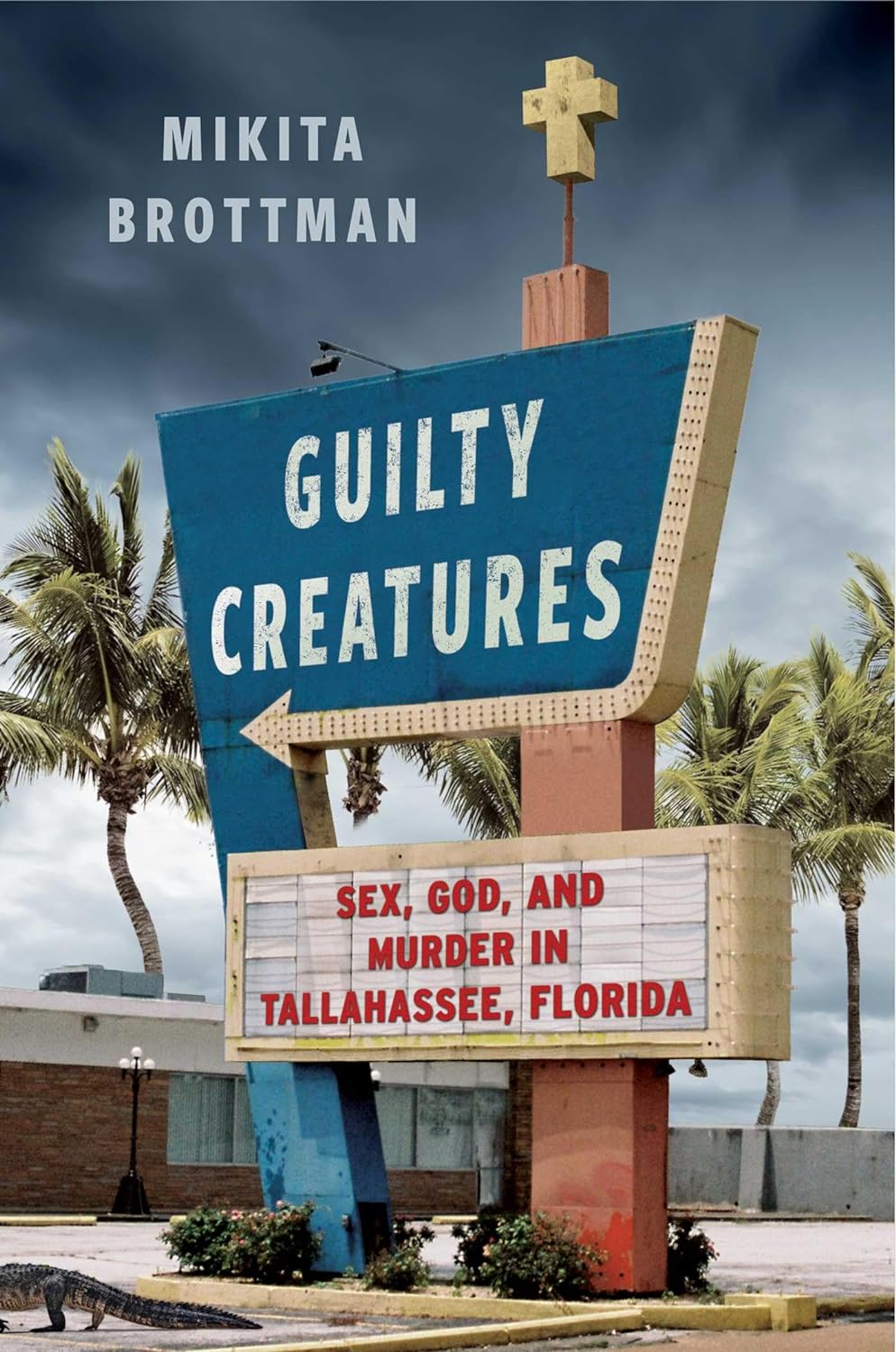
Guilty Creatures: Sex, God, and Murder in Tallahassee, Florida
Mikita Brottman
Publisher
Atria/One Signal Publishers
Publication Date
7/23/2024
ISBN
9781668020555
Pages
288
Categories
About the Author

Mikita Brottman
Questions & Answers
The book "Guilty Creatures" delves into the psychological effects of guilt and denial on the personal relationships of Brian Winchester and Denise Williams. It shows how their shared secret of Mike's murder led to a complex interplay of emotions and behaviors. Initially, they supported each other's delusions, maintaining that they were decent people despite their crime. As time passed, Brian's guilt grew, leading to paranoia and alcoholism, while Denise retreated into denial and religious devotion. Their marriage deteriorated, with Brian feeling betrayed and Denise becoming increasingly ascetic. Their differing coping mechanisms—Brian's excessive drinking and Denise's religious fervor—further strained their relationship. The book illustrates how guilt and denial can erode trust and intimacy, ultimately leading to the breakdown of their marriage and their descent into isolation and paranoia.
The book "Guilty Creatures" explores the profound influence of religious beliefs, particularly within the Baptist community, on the characters' motivations and actions. The characters, Brian and Denise, are deeply rooted in Baptist doctrine, which emphasizes the sanctity of marriage, the importance of family, and adherence to biblical teachings. Their adherence to these principles shapes their lives, from their choice of education and career to their social interactions and leisure activities.
Their religious beliefs play a crucial role in their response to the crime. Initially, they rationalize the murder as an "accident" and a "test" from God, justifying their actions through biblical narratives. Their religious devotion also serves as a defense mechanism, allowing them to maintain their self-image as good, law-abiding citizens despite their crime.
However, as the investigation progresses and the couple's secret is threatened to be uncovered, their religious beliefs become a source of anxiety and guilt. They turn to the church for redemption, attending workshops and engaging in Christian counseling, hoping to absolve their sins. Despite their efforts, the weight of their crime and the consequences of their actions continue to haunt them, revealing the complex interplay between faith and morality in their lives.
The book analyzes the power struggles between Brian and Denise through their contrasting personalities and values. Brian, impulsive and financially ambitious, desires control over his life and his relationships. Denise, conservative and cautious, seeks stability and security. Their affair, initially fueled by mutual dissatisfaction with their marriages, becomes a power play as Brian manipulates Denise into a life of secrecy and deceit.
Denise's desire for wealth and independence, combined with Brian's control, leads to the murder of Mike. Their shared guilt and fear of discovery contribute to their isolation and paranoia. The power dynamics escalate as they attempt to maintain their facade, with Brian's increasing alcoholism and Denise's growing asceticism highlighting their internal struggles.
These dynamics contribute to the crime and its consequences by creating a cycle of manipulation and resentment. Their marriage, once a partnership, becomes a battleground where each tries to assert dominance. The crime's aftermath, marked by guilt, paranoia, and mistrust, ultimately leads to their downfall, as Brian's confession and Denise's subsequent conviction underscore the destructive nature of their power struggle.
The book delves into the profound impact of media and public perception on the Mike Williams case. It illustrates how media coverage, particularly the "Disappeared" episode and Jennifer Portman's articles, kept the case in the public eye, influencing law enforcement and the community's perception. This coverage led to increased scrutiny and pressure on the Winchester-Williams couple, contributing to Brian's confession and Denise's trial. Public perception, often swayed by media narratives, painted Denise as a villain, while Brian's remorseful testimony was seen as credible. The trial's outcome was influenced by these perceptions, with the jury's decision shaped by the "Eve Factor" and the portrayal of Denise as a "femme fatale." The book underscores how media and public opinion can distort the truth, influence justice, and affect the lives of those involved.
The book "Guilty Creatures" critically examines the Mike Williams case, highlighting the challenges faced by law enforcement and the legal system in seeking justice. It reveals the complexity of personal relationships and hidden motives, which often hinder investigations. The lack of physical evidence and inconsistencies in testimonies made it difficult to prove the murder beyond a reasonable doubt. The book also points out the limitations of plea deals and the reliance on confessions, which can lead to controversial outcomes. Additionally, it underscores the role of public opinion and media in shaping the narrative of a case, potentially influencing the fairness of the trial. The Mike Williams case ultimately illustrates the limitations of the justice system in dealing with complex, emotionally charged cases where the truth may never be fully uncovered.